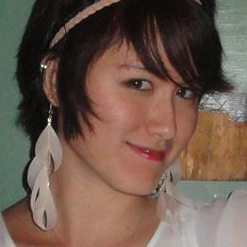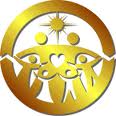
We all grew up enthralled by some tale or other, whether it be “The Thief and his Master,” “Little Red Riding Hood” or “Cinderella.” The Grimm Brothers, perhaps aptly named, had some surprisingly dark tales to tell. I remember as a child being petrified to turn the page not knowing what would happen to the children in the deep, dark wood, surrounded by the piercing eyes of spirits! Perhaps you have your own memories of fairy tales told to you long ago and can summon up the buried emotions the stories precipitated in you.
Once Upon a time
This week I heard a very interesting interview with the author of “Once Upon a Time: a History of Fairy Tales.” The author explained that originally fairy tales were written for adults, as a kind of ancient soap opera. That explains why the often dark themes aren’t exactly developmentally appropriate for children! Regardless, they live on in our culture and are reinvented with every generation. They are timeless because they feature bizarre events, often leaving the motivation of the characters unexplained. They are a blank slate waiting for  interpretation. They all contain the promise of danger – don’t bite the apple! Meanwhile the supernatural hovers ever near.
interpretation. They all contain the promise of danger – don’t bite the apple! Meanwhile the supernatural hovers ever near.
All of this is irresistible to Disney who introduces the stories anew to the next generation. These tales fascinate because the protagonists are usually innocent, and goodness wins the day. The characters certainly didn’t choose their challenging circumstances. They become victim to evil step parents, or a passing resentful witch or goblin who conspires to destroy them. The innocents have to figure out how to escape various curses. These tales fascinate us and allow us to ask, “what if, or what would I do?” They give us a chance to fantasize about what to do in difficult situations. How do you escape a curse? How should power be used?
Last year, Disney reinterpreted Hans Christian Anderson’s “Snow Queen” to make Frozen. It’s a little different from other Disney movies where true love’s kiss comes from a prince. It’s a story of the love between two sisters. Interestingly, sibling themes are embedded in many fairy tales. If you don’t know the story you can find a summary of the plot at: http://en.wikipedia.org/wiki/Frozen_%282013_film%29
Let It Go
Frozen is most famous for its Oscar winning hit “Let it Go” that has been called “an incredible anthem of liberation” and “ode to self-empowerment”. But is Elsa really free in her icy castle? Is she happy?
If you haven’t heard the song you can listen to it here: “Let it Go” on youtube
Like all good fairy tales, the story is useful because it relates to real life. Esla’s problem is that she has magical powers she is struggling to control. She is afraid of her power and its potential to hurt the people she loves. Sound familiar? Her only solution is to cut herself off from everyone she loves. She builds an ice castle for herself and lives as a queen, but over time her heart is crippled by her loneliness.
The power of fairy tales according to the author of “Once Upon a Time”, is that they cause us to confront our own battles with things that have power over us. Elsa was crippled by her cryokinetic powers. Similarly, we can be crippled when our own talent, money or sexuality overwhelm us, for the simple reason that we don’t know how to use these potential assets properly, or in the way that God intended. The problem isn’t that we have these things, but it is our inability to control them. We are confused by the choices and freedom we have.
Understanding Freedom
Understanding freedom has always been a mystery for people. We want it, but don’t know how to exercise it well. Like Elsa, we yearn for freedom but what does it mean to be free?
 It seems contradictory to think that God gives humankind freedom when it means we can use that freedom to do destructive things – to hurt ourselves, others, or even God. Why doesn’t God stop evil from happening, or stop us from making bad decisions? These are serious questions that need some kind of explanation but religion often comes up short. The Divine Principle offers profound insight into this whole question of freedom.
It seems contradictory to think that God gives humankind freedom when it means we can use that freedom to do destructive things – to hurt ourselves, others, or even God. Why doesn’t God stop evil from happening, or stop us from making bad decisions? These are serious questions that need some kind of explanation but religion often comes up short. The Divine Principle offers profound insight into this whole question of freedom.
“What people today mean by freedom is the right to assert oneself (a ‘let it go’ mentality). Their freedom is really a shield for their self-centered lifestyle. When ten people each assert their freedom, they erect ten walls around themselves, and within those walls their personalities and interests diverge to such an extent that they cannot get along together” – Sun Myung Moon
We use our freedom in destructive ways; we use it to erect walls and barriers instead of realizing that we are all one, that we came from the same source, our Heavenly Parent. Whether we are aware of it or not, every day we create ourselves by the choices we make.
In this clip from Frozen you see Anna’s attempt to free her sister, Elsa, from the walls she has erected around herself.
The problem with freedom
So if freedom is such a problem why did God give us freedom? The Divine Principle explains that God had to give us freedom or our love would not be worth anything. Who wants to receive love that is forced or contrived? Even the almighty God is vulnerable in this respect. He needs our love but cannot make us love him. He can’t force us to love him back.
“True love can only exist in the presence of freedom.”
God, like any parent, worries that we won’t use our freedom properly, nevertheless, he can’t take our freedom away and doesn’t want to. This is the reason God gave the commandment to Adam and Eve – he was trying to set safe boundaries, to protect, but instead of trusting God, Adam and Eve shut God out. Have you ever shut God out, or tried to? Maybe others wanted to help you, just like Anna wanted to help Elsa, but you wouldn’t let anyone in. We only act in this way because we don’t understand the nature of life, or our reality.
We were given freedom so that we could, from our own heart and by fulfilling our own responsibility, perfect the most precious thing we own; our love. It’s up to each one of us to do this. Freedom is an incredible gift we were meant to take care of because we need it to become the people we are destined to be.
Rev Moon explained freedom this way:
“God created human beings to exercise freedom as spiritual beings. At the same time, God also required human beings to be responsible for how they use their freedom. This is because freedom requires self-discipline and self-control. Freedom exists within the law, not apart from the law. There are physical and spiritual laws at work in the universe; they are the ultimate limits to freedom. For example, you are free to jump off the top of the New Otani Hotel. That is your freedom, but your free act will bring your own destruction because you are going against the laws of nature. You are free to go into the ocean and breathe water instead of air, but the laws of nature work at that moment too. Your lungs cannot bear it and you will die. Spiritual laws, however, are not so obvious. Yet they are as absolute as the laws of nature. To recognize spiritual laws, we must recognize that humans are spiritual beings, created by God. God, being the Creator, alone predetermined the purpose of creation and set up its spiritual laws. All value begins with God. He determined the purpose of human life and how people are to achieve that purpose. That is the foundation of absolute value. From this absolute foundation emerge moral principles, which comprise spiritual law. Human beings, created as spiritual beings, are bound by this spiritual law.
The fundamental purpose of human life is what the Creator purposed us to be, and we exist on this earth to achieve this purpose. Therefore, our spiritual happiness is realized when we accomplish our responsibility in accordance with God’s moral law. Should we violate this law, it will result in self-destruction, just as surely as if we were to disregard the laws of nature.”
We don’t get to choose where we are born
Neither Elsa, nor Anna chose their place and circumstance, but they had a choice about what they could do with the circumstances they encountered in their life by exercising their free will. Anna was hurt by Elsa again and again, but continued to love her, and believe in her. Because of that unconditional love, ultimately Elsa could be saved from the prison she had created for herself.
 This is the tradition of Christ’s love. He loves us even when we don’t think we are worthy. This is the love of God. Galatians 5 reminds us “For freedom Christ has made us free…..For you were called to freedom, brethren, only do not use your freedom as an opportunity for the flesh, but through love, be servants of one another.”
This is the tradition of Christ’s love. He loves us even when we don’t think we are worthy. This is the love of God. Galatians 5 reminds us “For freedom Christ has made us free…..For you were called to freedom, brethren, only do not use your freedom as an opportunity for the flesh, but through love, be servants of one another.”
Or as Olaf would say, “True love is putting someone else’s needs before your own.”
We have freedom no matter what our circumstances are, to create a life we love and bring joy to God, ourselves, others.












